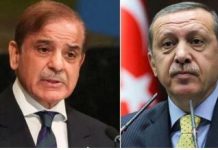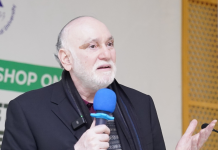ISLAMABAD, SEPT 27 (DNA) – Pakistan faces significant challenges, but it can overcome its current difficulties and achieve stability and prosperity through a unified national charter focused on economic stability, constitutional adherence, and robust law enforcement.
Achieving this vision requires comprehensive, long-term governance reforms across all sectors to build a more capable and accountable government. A strong commitment to transparency and a unified effort to project a positive image, both domestically and internationally, are essential to this transformation.
The views were shared by a group of leading practitioners and experts at the annual meeting of the National Advisory Council (NAC) of the Institute of Policy Studies (IPS), Islamabad. The yearly gathering aims to solicit intellectual input from experienced practitioners to inform IPS’ research activities and generate realistic ideas on national issues.
Chaired by Khalid Rahman, chairman IPS, the meeting was addressed by Mirza Hamid Hasan, former federal secretary Water and Power, Dr Syed Tahir Hijazi, former member (governance), Planning Commission of Pakistan, Syed Abu Ahmad Akif, former federal secretary, Dr Syed Kaleem Imam, former federal secretary and IG Police, Vice Admiral (r) Iftikhar Ahmed Rao, Muhammad Bashir Jan Mohammad, chairman and director Westbury Group of Companies, Naufil Shahrukh, deputy team lead, Institutional Reform Studies, World Bank’s Karachi Water and Sewerage Services Improvement Project, and Dr Naveed Butt, former head, Pediatrics Department, Federal Government Services Hospital.
The speakers underscored that persistent issues such as corruption, administrative inefficiency, and political polarization, continue to hamper progress. A comprehensive, long-term transformation process that incorporates governance reforms across all sectors was proposed as the way forward. Additionally, the need for truth and reconciliation efforts was highlighted as a means to overcome internal divisions and foster national unity.
One of the key points discussed was the detrimental impact of negative narratives surrounding Pakistan, both domestically and internationally. The experts stressed that countering disinformation is critical to promoting a more accurate and positive image of Pakistan’s potential and achievements. This, they noted, would not only boost the country’s international standing but also strengthen national morale.
The role of civil society in driving governance reform was deemed crucial. Advocacy and lobbying efforts, particularly those focused on ensuring the effective formulation and implementation of state policies, were proposed as vital components of the reform agenda. By engaging with key decision-makers and the general public, especially through research dissemination in both English and Urdu, civil society can help shift the national discourse toward optimism and constructive change.
Another vital element of the reform agenda should be capacity building within government institutions, the speakers noted. Individuals holding key positions in ministries must have the expertise to navigate complex challenges, which is essential for ensuring effective governance and policy implementation. To this end, training programs, knowledge exchange, and institutional reforms were recommended to build a more capable and accountable government.
The speakers proposed a unified national charter focused on economic stability, constitutional adherence, and strong law enforcement. Pakistan’s philanthropic spirit, they noted, should be harnessed as a national asset to tackle challenges in a coordinated and unified manner. Philanthropic initiatives aligned with national development goals can address some of the immediate socio-economic concerns and contribute to long-term sustainable growth.
Regarding Pakistan’s foreign relations, the current global and regional context was seen as an opportunity to rebuild ties with neighboring countries like Afghanistan and Bangladesh. These relationships should be rooted in mutual respect, shared history, and a forward-looking agenda that benefits all parties involved. Improving regional cooperation was seen as a key to enhancing Pakistan’s strategic position and ensuring peace and development in the broader region.
The discussion concluded with a call for national unity and a strong commitment to reform. Despite the challenges, the speakers expressed optimism that with sustained efforts, Pakistan’s long-term prospects for sustainable development remain bright.

















